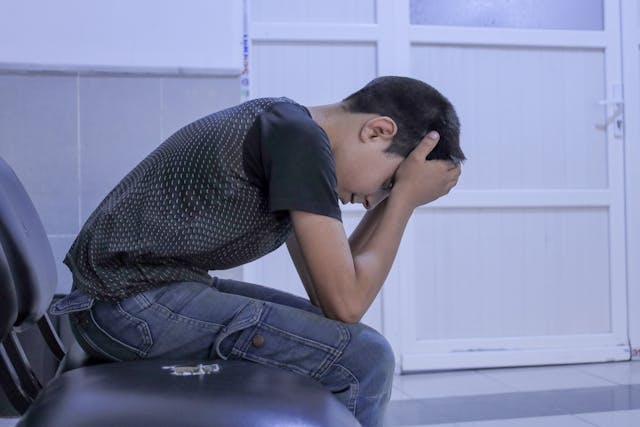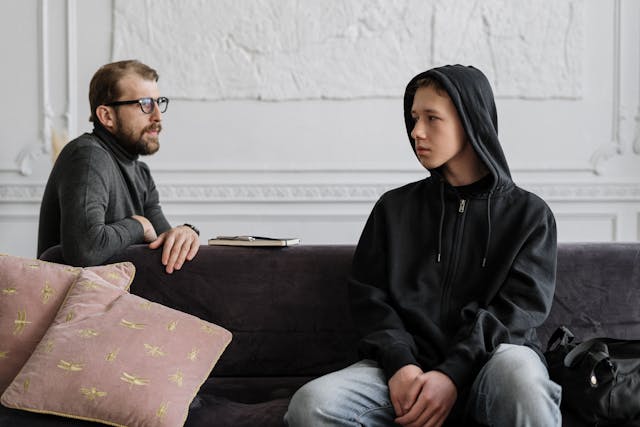Raising a child comes with a unique set of challenges, and for parents of LGBTQIA+ youth, navigating mental health and social acceptance can add another layer of complexity. Many LGBTQIA+ young people face significant mental health challenges due to societal pressures, discrimination, or lack of acceptance. As a parent, understanding how to support your LGBTQIA+ child’s mental health is critical to ensuring they thrive emotionally and mentally. Fortunately, Denver offers a wide array of resources and services specifically tailored to LGBTQIA+ youth and their families.
In this guide, we’ll explore key resources, support groups, and expert tips to help you along the journey of supporting your child’s mental health.
Why Mental Health Support is Crucial for LGBTQIA+ Youth
LGBTQIA+ youth face higher rates of depression, anxiety, and suicidal thoughts compared to their heterosexual and cisgender peers. LGBTQIA+ youth mental health is particularly vulnerable to the effects of discrimination, which increases their risk for depression and anxiety. According to research from The Trevor Project, LGBTQIA+ teens are four times more likely to attempt suicide than their non-LGBTQIA+ peers. Discrimination, bullying, and family rejection can contribute to these mental health challenges.
Providing emotional and psychological support not only helps reduce these risks but can also boost your child’s self-esteem and sense of belonging. Building a support system that includes professional therapy, community connections, and affirming family dynamics is essential for your child’s well-being. Access to specialized mental health for LGBTQIA+ youth can significantly improve their quality of life by addressing issues like anxiety, depression, and self-esteem.
Mental Health Resources for LGBTQIA+ Youth in Denver
Denver is home to a number of LGBTQIA+-friendly therapists, mental health services, and community organizations designed to offer comprehensive support for LGBTQIA+ youth. Denver LGBTQIA+ resources like iAmClinic offer tailored therapy and community support to help LGBTQIA+ youth navigate mental health challenges.
Here are some top resources to explore:
iAmClinic
iAmClinic is a Denver-based counseling service that specializes in LGBTQIA+ mental health. They offer individual, couples, and family therapy, addressing issues such as anxiety, depression, trauma, coming out, polyamory, and gender identity. iAmClinic’s therapists are trained in supporting both LGBTQIA+ individuals and their families through challenging times.
- Services: Individual and family therapy, support for exploring sexual orientation, gender identity, anxiety and depression therapy, dating, polyamorous and open relationship counseling.
- Reach out to iAmClinic for more details.

The Center on Colfax
As one of the largest LGBTQIA+ community centers in the Rocky Mountain region, The Center on Colfax offers several mental health and wellness programs. The center provides support groups for LGBTQIA+ youth and their families, as well as resources to connect with affirming healthcare providers and therapists.
- Services: Peer-led support groups, mental health referrals, and community events.
- Contact: The Center on Colfax
The Trevor Project
Though not Denver-specific, The Trevor Project is an essential national resource offering crisis intervention and suicide prevention for LGBTQIA+ youth. Their 24/7 hotline, online chat, and text services can be a lifeline for teens in crisis.
- Services: 24/7 crisis intervention, counseling, and online community support.
- Contact: The Trevor Project
Denver Public Schools (DPS) LGBTQ Student Services
For families with school-aged children, Denver Public Schools has LGBTQIA+ student services in place to support youth. These include access to mental health professionals who specialize in supporting LGBTQIA+ students, as well as on-campus LGBTQ clubs and organizations like Gay-Straight Alliances (GSAs).
- Services: School-based mental health services, GSAs, LGBTQIA+ student support programs.
- Contact: DPS LGBTQ Services
How to Support Your LGBTQIA+ Child at Home
While professional therapy and community resources are invaluable, the support your child receives at home is equally important. Here are several ways to foster a supportive environment for your LGBTQIA+ child:
1. Be Open and Affirming
Create a home environment where your child feels safe discussing their gender identity or sexual orientation. Use affirming language, listen to their concerns without judgment, and educate yourself on LGBTQIA+ issues. Your acceptance will go a long way in promoting their emotional well-being. Supporting your LGBTQIA+ child means creating an affirming environment where they feel safe to express their identity without fear of rejection.
2. Encourage Community Involvement
Help your child find and engage with LGBTQIA+-friendly spaces, such as youth support groups or local community centers like The Center on Colfax. Being part of a community where they feel seen and understood can improve their sense of belonging and reduce feelings of isolation.
3. Advocate for Their Rights
Ensure that your child is supported in their school and other environments. Advocate for inclusive policies, and don’t be afraid to speak up if they face discrimination. Schools should provide safe spaces such as GSAs, and healthcare providers should offer inclusive care.

Recognizing Signs Your Child May Need Additional Support
It can be difficult for any parent to know when their child needs professional help. Some signs that your child may benefit from mental health support include:
- Withdrawal from social activities
- Extreme mood changes or irritability
- Self-harm or talk of suicide
- Difficulty concentrating or sleeping
- Loss of interest in things they used to enjoy
If you notice any of these signs, it’s important to seek professional help immediately. Many of the resources listed above, such as iAmClinic and The Trevor Project, can provide the support your child needs.
Innovative Therapies for LGBTQIA+ Youth in Denver
While traditional talk therapy can be incredibly effective for many, some LGBTQIA+ youth dealing with severe depression, anxiety, or trauma may benefit from more innovative or alternative therapeutic approaches. Denver is a hub for cutting-edge mental health treatments, including EMDR (Eye Movement Desensitization and Reprocessing), which is gaining traction for their effectiveness in treating complex mental health challenges. Below, we explore this therapy and share real-life examples of how families in Denver have successfully navigated mental health challenges with this tool.
EMDR for Trauma Recovery
EMDR (Eye Movement Desensitization and Reprocessing) is a psychotherapy approach specifically designed to help individuals heal from trauma. Many LGBTQIA+ youth experience trauma related to bullying, discrimination, or rejection, which can have long-lasting effects on their mental health. EMDR uses bilateral stimulation—such as guided eye movements or tapping—while clients recall traumatic memories, helping them reprocess these experiences in a way that reduces their emotional impact.
EMDR has been particularly effective for LGBTQIA+ individuals who have experienced complex trauma, such as repeated instances of bullying or familial rejection. Clinics like iAmClinic offer EMDR as part of their trauma recovery services, providing a safe space for youth to confront and heal from their traumatic experiences. LGBTQIA+ therapy in Denver often integrates trauma-informed care to address the unique experiences of rejection or discrimination that many LGBTQIA+ youth face.
Case Study: One Denver mother shared the story of her daughter, a 16-year-old who had been the target of persistent bullying after coming out as bisexual. Despite months of traditional talk therapy, her daughter was still having nightmares and flashbacks. The family turned to EMDR therapy, where over several sessions, the daughter was able to revisit and reprocess painful memories without being retraumatized. Her mother reported that after EMDR, her daughter became more confident, started engaging in school again, and was no longer haunted by her past experiences.
Why These Therapies Matter for LGBTQIA+ Youth
For many LGBTQIA+ youth, mental health challenges like depression and trauma are often deeply intertwined with their experiences of gender and sexual identity. Innovative therapy like EMDR provides alternative avenues for healing when traditional methods aren’t enough. By offering these options, local providers like iAmClinic are ensuring that LGBTQIA+ youth in Denver have access to comprehensive, compassionate care tailored to their unique needs.
Conclusion: Building a Support System for Your LGBTQIA+ Child
Supporting your LGBTQIA+ child’s mental health is an ongoing journey. The good news is that there are many resources in Denver to help both you and your child navigate the challenges ahead. By combining professional mental health support with a loving and affirming home environment, you can give your child the best possible foundation for a healthy and happy life.


